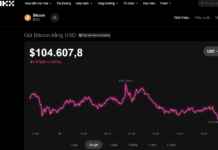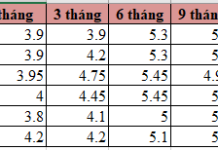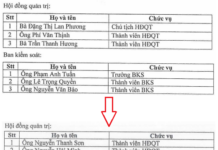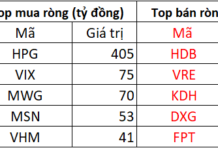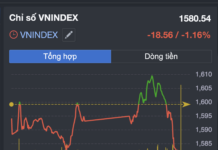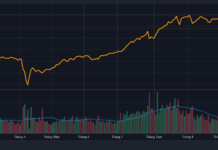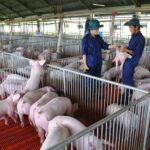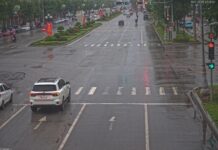According to Russia’s Sputnik news agency, Bruno Jaspaert, Chairman of EuroCham in Vietnam, believes that Vietnam holds a rare advantage to rise powerfully on the global economic map.
With an extensive network of Free Trade Agreements (FTAs), expanding production capacity, and remarkable resilience, Vietnam’s economy is demonstrating unique vitality.
“Only Vietnam”
Speaking at the Swiss-Vietnam Economic Forum in Da Nang (from November 3-5), Jaspaert affirmed that Vietnam’s goal of entering the top 15 global economies by 2045 is entirely feasible.
He posed a question: Which country dares to declare before the international community its goal of achieving carbon neutrality by 2050, maintaining a minimum growth rate of 8%, and rising to the global top 15? And he emphasized: “Only Vietnam”, as quoted by Vietstock.
The EuroCham Chairman also noted that Vietnam is currently among Asia’s leaders in trade integration, with 17 FTAs and 14 strategic partners, second only to Singapore in ASEAN.
Despite the world experiencing three major shocks in the past 25 years—the dot-com bubble, the financial crisis, and the pandemic—Vietnam has maintained a stable growth trajectory.

Jaspaert stated that Vietnam possesses an extraordinary resilience that “few nations have.” Image: pluralia
According to him, Vietnam is only at the beginning of its development journey, highlighting the country’s unique position in the current global context.
Jaspaert also cited the effectiveness of the EVFTA: after just 5 years, Vietnam-EU trade turnover accounted for 40% of the total accumulated previously. This is seen as a prime example of the power of free trade when an economy and a large market jointly enhance cooperation.
A notable point, according to EuroCham, is that Vietnam’s imports are growing at a rate equivalent to exports, particularly in high-tech goods and machinery (up 38% and 24%, respectively).
This reflects Vietnam’s transition beyond a simple assembly model, gradually forming a more in-depth industrial foundation, increasing value in the supply chain, and expanding production capacity.
Regarding growth prospects, Jaspaert believes that an 8% GDP growth rate is well within reach, despite some more cautious international forecasts.
He provided a vivid example: the average speed of trucks in Vietnam has increased from 26 km/h to 53 km/h in just 7 years—according to him, these figures “don’t lie” and reflect the robust operation of the economy.
What makes him place great trust in Vietnam is not just the economic indicators, but also the country’s strong adaptability.
After years of working in eight countries, he affirmed he has not encountered any place with the same resilience as Vietnam—an extraordinary ability to recover that, according to him, “few nations have.”
This is precisely why he chooses to remain committed and believes Vietnam is well-positioned to realize its development aspirations.

Bruno Jaspaert, Chairman of EuroCham in Vietnam. Image: Sputnik
Rising Confidence
According to Sputnik, Vietnam’s business confidence index has risen to its highest level in three years.
In the third quarter, 76% of European business leaders were willing to recommend Vietnam as an attractive investment destination. EuroCham believes that despite being affected by new U.S. tax policies, Vietnam still has a strong enough foundation to achieve or exceed the 8% growth target by 2025.
On the policy front, Nguyen Thi Lan Phuong (Ministry of Industry and Trade) stated that Vietnam has implemented 16 FTAs, is preparing to bring the FTA with the UAE into effect, and is in the final negotiation stages with the EFTA bloc (Switzerland, Norway, Liechtenstein, Iceland).
The next round of negotiations will take place in Da Nang at the end of November, expected to accelerate the completion of the agreement.
Thanks to its extensive FTA system, Vietnam has strongly transformed from a planned economy to a socialist-oriented market economy, currently ranking third in ASEAN and 34th globally in terms of GDP.
In 2024, import-export turnover exceeded $780 billion, maintaining a trade surplus, and Vietnam is among the top 15 largest FDI destinations globally. However, the utilization rate of FTA tax incentives remains low (30–40%), below Thailand and Indonesia’s 60–80%.
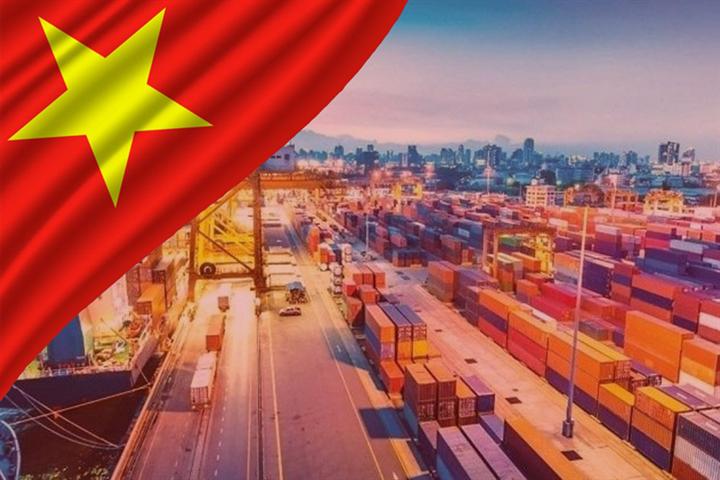
Vietnam’s business confidence index has risen to its highest level in 3 years. Image: plenglish.com
The Ministry of Industry and Trade is implementing an action program with four pillars to enhance integration effectiveness.
Among these, the FTA information portal, operational since 2020, helps businesses look up tariff commitments, rules of origin, and sustainable development standards—contributing to the transparency of trade data. The Ministry has also developed an FTA Index to assess the implementation level of each locality.
The second pillar aims to build a support ecosystem for businesses—from management agencies, industry associations, to trade promotion organizations—with a special focus on small and medium-sized enterprises. The final pillar focuses on training a workforce well-versed in FTAs, helping businesses understand regulations and maximize benefits from the agreements.
From an international perspective, Andri Meier (Swiss Embassy in Vietnam) assessed that Vietnam has demonstrated very strong integration capabilities, but there is still much room to increase the participation of domestic businesses in the global value chain.
Switzerland is currently supporting numerous projects to help Vietnam raise compliance standards and access more demanding markets.
According to experts, signing and effectively utilizing FTAs will be a crucial driver for Vietnam to transition from a processing economy to a high-value economy, upgrade the supply chain, and strengthen industrial capacity in a volatile global trade context.
The path of openness and proactive integration continues to be seen as the right strategy to enhance Vietnam’s position on the international stage.
Prime Minister Pham Minh Chinh Holds Working Session with Thanh Hoa Provincial Party Standing Committee
On November 9th, Prime Minister Pham Minh Chinh, alongside leaders from various ministries and sectors, visited Yen Cuong commune in Thanh Hoa province. The visit coincided with the groundbreaking ceremony for new boarding primary and secondary schools in border communes. During the trip, the Prime Minister and his delegation held a working session with the Standing Committee of the Thanh Hoa Provincial Party Committee. The meeting focused on discussing the province’s socio-economic situation, public investment disbursement, the implementation of the two-tier local government model, future directions, tasks, solutions, and addressing proposals.
Today’s Live Pig Prices, November 8th: Unusual Developments
Today’s pig prices have shifted unexpectedly, with small-scale farmers surpassing the rates offered by large-scale farming corporations.








